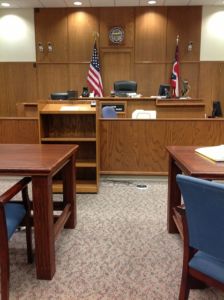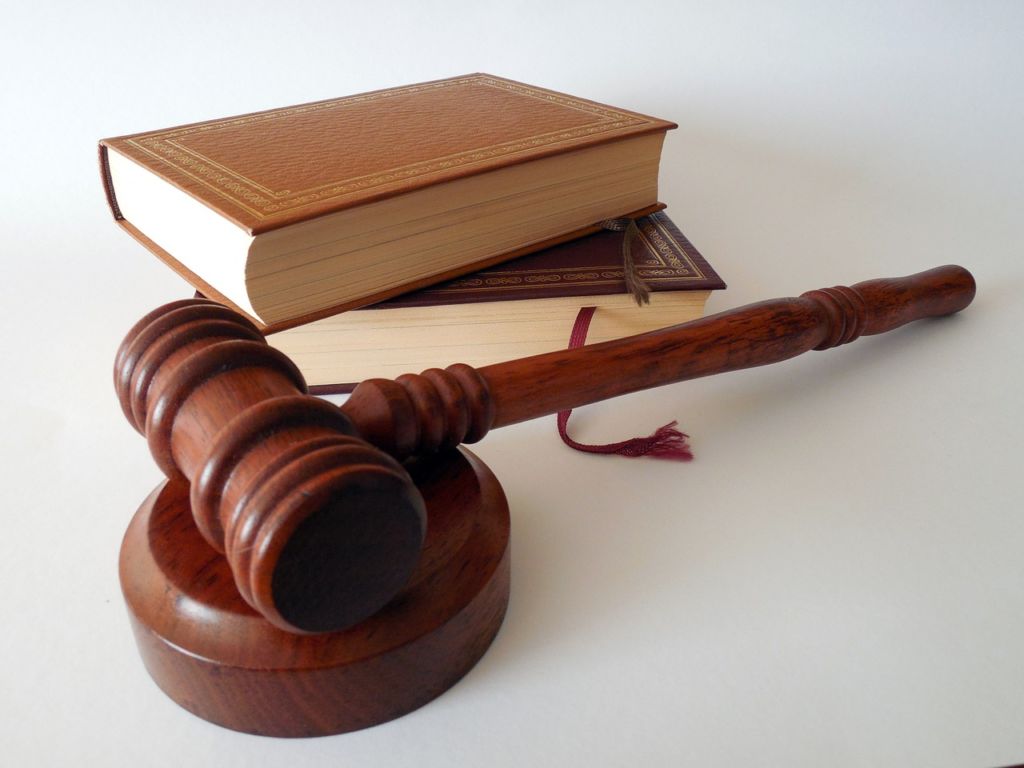 If you litigate your lawsuit all the way to a trial verdict, then you’re probably aware that an appeal is possible. If you lost, this gives you a second chance to potentially win your case. If you won, you have another hurdle to overcome before you can finally celebrate your legal victory.
If you litigate your lawsuit all the way to a trial verdict, then you’re probably aware that an appeal is possible. If you lost, this gives you a second chance to potentially win your case. If you won, you have another hurdle to overcome before you can finally celebrate your legal victory.
But besides a new court having another chance to decide your case, is the process of an appeal that much different from the trial process? Yes! There are two examples that demonstrate how different of a process it is from a big picture perspective.
First, there are attorneys that focus primarily on handling the appellate stage of a case. Handling an appeal is so different that some trial attorneys (even those who have intimate knowledge about the case and have worked on it for many years) understand that their clients are better off if an attorney that specializes in appellate practice primarily handles the case from now on.
Second, think about all the legal television shows and movies you may have seen. How many of them take place before or during a trial and how many take place during an appeal? The fact that trials and appeals are so different helps explain the answer to this rhetorical question.
Now that you have a perspective on how different an appeal is from trial, we’ll take a closer look at how they’re different.
What an Appellate Court Can Review
Before we explain what an appellate court will examine during an appeal, let’s first describe two types of legal issues in litigation. First, there are questions of fact. These are questions that relate to facts about the case. For example, in a criminal murder case, examples of questions of fact might include:
- What was the murder weapon used by the defendant?
- Did the eyewitness see the defendant committing the crime?
- Was the defendant lying when they testified in court?
During a jury trial, it will be the jury that answers these types of questions (if there is no jury because it’s a bench trial, then the judge will answer these factual questions).
In contrast to questions of fact, there are questions of law. These are technical legal questions that decide how the law, or what specific law, is to be applied in a particular situation. Using the criminal murder case example, types of questions of law could include:
- Did the prosecutor’s forensic scientist have a scientific background that was sufficient to provide an expert opinion?
- Were the defendant’s statements made during interrogation admissible as evidence?
- Did police detectives have a valid search warrant when they gathered evidence at the defendant’s home?
As a general rule, only questions of law are reviewable on appeal. This can include things like an interpretation of the law, application of the law or a procedural error during trial. In contrast, questions of facts are usually left untouched during an appeal.
So keeping with the criminal murder case example, if a defendant was found guilty of committing murder and filed an appeal, his appeal could include a review of whether his incriminating statements were properly admitted into evidence. However, a jury’s decision as to whether they found an eyewitness credible or not will almost never be subject to appellate review.
In the rare case where a question of fact is reviewed at the appellate level, the appellate court will give a tremendous amount of deference to the trial court’s findings. To illustrate, let’s use a sports analogy; a referee or umpire’s on-field ruling is the equivalent of trial and the replay booth is the appellate court. For the on-field call to be reversed, there must be “incontrovertible visual evidence” (in the NFL) or “clear and convincing evidence” (in MLB) to justify such a decision. Basically, the original call will stand unless it’s very clear a mistake was made. An appellate court follows the same general idea.
It’s pretty easy to see how questions of fact are usually far more “interesting” to a casual observer than questions of law. So it’s not surprising that you see far more legal movies and television shows focusing on a trial rather than an appeal.
There Is No Jury on Appeal
A trial can have either a jury or a judge decide the case. But on appeal, it’s always a judge (sometimes multiple judges) who make the final decision as to whether the case should be affirmed, reversed or both. A case can be affirmed in part and reversed in part when it has multiple legal issues that can go either way.
No New Evidence
Except in very limited situations, no new evidence can be introduced during an appeal. In the vast majority of appeals, the appellate judges will only look at the evidence already introduced at trial.
Oral Arguments
At trial, there is a lot of action in the courtroom. Each side can give opening and closing statements, as well as conduct a direct and cross examination of witnesses. There will also often be oral arguments where each side will basically hold a debate before the judge as to how a particular part of trial should proceed.
On appeal, there is far less courtroom action, if any. The only courtroom action during an appeal will be oral arguments, where each side will briefly present the legal basis for their position on appeal. Then the judges will ask questions of each side, testing their arguments for weaknesses or flaws. In essence, it’s an elaborate and high stakes Q and A session.
Depending on the appellate court, there may not even be oral arguments. It’s often up to the judges to decide if they will hold oral arguments in a particular case. Depending on your case, this could be a good or bad thing, but in most cases, oral arguments have only a small impact.
It’s All About That Brief
With oral arguments playing a relatively small role in deciding a case, it’s the brief that does most of the persuading for appellate judges. As a result, appellate briefs represent some of the best writing in the legal profession. They must be concise, yet complete; persuasive, yet credible; and meticulous, yet unpresumptuous. There is definitely an “art” to writing effective briefs. In a later blog post, we’ll discuss some of the characteristics of an effective appellate brief.
Summing It Up
- On appeal, only questions of law are typically reviewable.
- If a question of fact is reviewable during an appeal, the appellate court will provide a large amount of deference to the trial court’s factual determination.
- There is no jury in an appeal, just one or more judges.
- Very rarely is new evidence introduced on appeal.
- The only courtroom activity that takes place on appeal is the oral argument, and it is usually granted at the appellate judges’ discretion.
- It’s the appellate brief, not the oral argument, that provides the greatest opportunity to persuade the appellate judge to decide the case one way and not the other.
For More Information
If your case recently ended and an appeal seems likely, please contact us for a no cost online review of your case. Please keep in mind that if you plan on filing an appeal, your time to do so may be limited, so you’ll need to act quickly.





